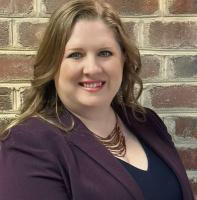Swepsonville Felony Lawyer, North Carolina
Sponsored Law Firm
-
 x
x

Click For More Info:
-
Roupas Law Firm PLLC
119 North Greene Street, Suite 100 Greensboro, NC 27401» view mapCriminal Defense Get The Support You Need For Your Case
If you are charged with a crime, you need an experienced criminal defense attorney to represent you and protect your rights.
800-658-8911
Lindsey Granados
✓ VERIFIEDCriminal, DUI-DWI, Felony, White Collar Crime, Misdemeanor
Criminal Defense Attorney & Trial Lawyer
Attorney Lindsey D. Granados is an experienced trial lawyer and seasoned litigator who advocates tirelessly for her clients. She truly cares for the w... (more)
Matthew Charles Faucette
✓ VERIFIEDCriminal, Felony, DUI-DWI, Misdemeanor
Faucette Law Firm attorneys have represented individuals charged with murder, death by motor vehicle, armed robbery, burglary, kidnapping, extortion, ... (more)
Kevin Barry Dowling
Criminal, Misdemeanor, DUI-DWI, Felony, Power of Attorney
Status: In Good Standing Licensed: 41 Years
FREE CONSULTATION
CONTACTDavid Benjamin Alexander
Landlord-Tenant, Occupational Safety & Health, Divorce & Family Law, Felony
Status: In Good Standing Licensed: 24 Years
FREE CONSULTATION
CONTACT Thomas Roupas Greensboro, NC
Thomas Roupas Greensboro, NC AboutRoupas Law Firm PLLC
AboutRoupas Law Firm PLLC Practice AreasExpertise
Practice AreasExpertise


